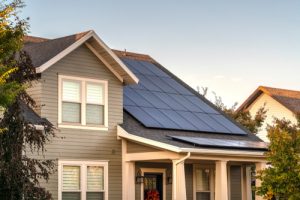 Getting started with your home solar system can be confusing. You likely have some questions and are wondering how to get started. In this blog post, we answer some of the most common questions we hear from homeowners and give you some idea of what to expect from your residential home solar system.
Getting started with your home solar system can be confusing. You likely have some questions and are wondering how to get started. In this blog post, we answer some of the most common questions we hear from homeowners and give you some idea of what to expect from your residential home solar system.
How Much Do Residential Solar Panels Usually Cost?
The answer to this question depends on the state you live in and the size of the solar panel system you are looking to install. When we calculate this cost, we use the dollars per watt formula. This is just how much it costs per watt of electricity. The good news is that the cost of solar has seen a significant drop in the past 10 years – approximately 70 percent. Additionally, installing solar panels raises the property value of your home and a good system lasts 25 years or more. So you can still see a good return on investment even if you have plans to move.
The average cost per watt in 2019 was about $2.91/W for residential solar panel owners. So if you install a very modest 1kW system, you’ll pay $2910, for instance. This is before and rebates and tax credits you may receive.
How Long Will it Take to Install?
This depends on the contractor with which you choose to do business, the size of your system, and if you plan to use net metering. Connecting net metering means it will take additional time for your system to be connected to the grid. On average, you can expect a solar installation project to take a reliable contractor about 2-3 days of work.
What Kind of Tax Credits Will I Be Eligible for?
There are two main types of tax credits that homeowners who install solar panels are eligible for. The first one is the same nationwide, as it is the federal investment tax credit, also known as the solar tax credit. Provided you are buying your system, you can get a federal tax credit of up to 26 percent of the total cost of your solar panel system. The second tax credit is based on where you live. You will want to discuss this with your solar panel contractor for all of the specific location-based details.
Will I Still Be On the Grid?
Yes, the vast majority of homeowners still stay on the grid with their solar panel systems. Going completely off-grid involves many factors most people don’t realize: such as the ability to store energy, as well as a backup power generator when your panels don’t take in enough sunlight to power your property.
How Much of My Home Energy Can Be Solar Powered?
Of course, all homeowners will want the answer to that to be 100 percent. However, this, of course, is not the case. You won’t get peak sun hours from your panels every day, and panels don’t operate at maximum efficiency all the time. This is why net metering is recommended, so you can rollover the solar energy that is produced on a surplus. This allows you to eventually pay $0 in electric utility costs while still maintaining the peace of mind that it’s there should you need it as a backup.
Consult a Solar Panel Expert
These five important things will give you a good jumping-off point when you’re in the market for home solar energy. If you have questions or are interested in a free consultation, we are happy to speak with you. Give the solar panel experts at All-In-One Solutions a call today!

